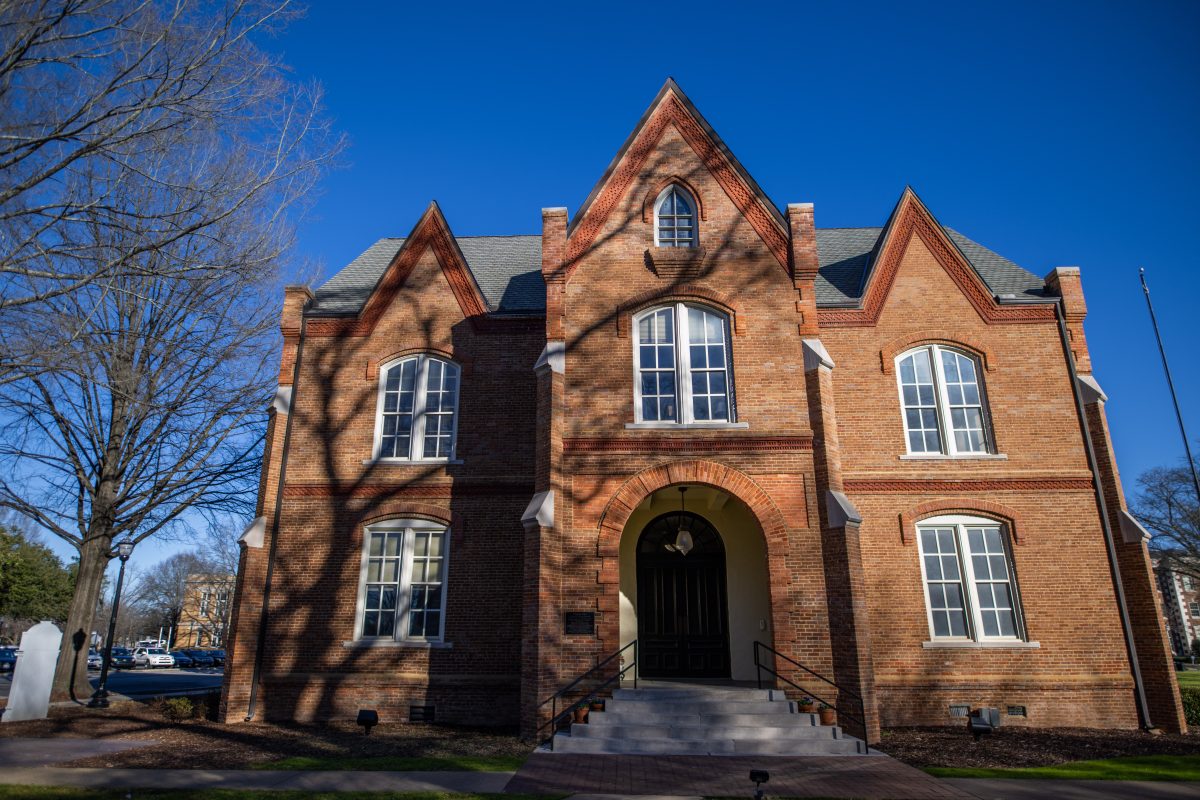Judge Steve Wilson discussed his new book, “A Lynch Mob Mentality,” with the Tuscaloosa Civitan Club on Sept. 22.
The meeting was held at the Country Club of Tuscaloosa. Wilson, a retired Alabama circuit judge and member of the Tuscaloosa Civitan Club, presided over the 2002 case Cottrell v. NCAA.
Wilson said he strove for objectivity and deliberately held off from sharing his personal opinions while on the bench. With the official end of the case and his retirement, he is free to express his opinion.
“For two and a half years, I had to sit back and remain silent,” Wilson said. “The truth is, in my judgment, the massive conspiracy was a hoax.”
The case, described by Wilson as “the most highly publicized civil lawsuit in the state of Alabama,” began in 2001 when the NCAA filed sanctions against the University of Alabama over allegations of severe rules violations associated with the Alabama and University of Tennessee football programs.
Ronald Cottrell, a former assistant coach for the University of Alabama, filed a civil suit against the NCAA, claiming what Wilson described as a “massive conspiracy” focused on the University and Cottrell specifically.
In 2005, the Decatur Daily published a timeline of the trial. The timeline explained how in December of 2002, Cottrell and Ivy Williams, another Alabama assistant coach, filed a defamation suit against the NCAA for inappropriately implicating them in Alabama’s violations. Cottrell claimed his career was ruined and he would never be hired at another college, Wilson said.
Wilson said Cottrell’s attorney, Thomas Gallion, initially sued Tom Culpepper, Logan Young and UT head coach Phil Fulmer. Culpepper was a booster for Alabama and Young was a booster for Tennessee, Wilson said. Fulmer was never formally brought into the suit.
Wilson also said Paul Finebaum, a sports radio host prominent in the Southeast, was included as a defendant in the suit. Cottrell claimed Finebaum had defamed him on his radio show when the NCAA violations were announced, Wilson said. When Finebaum was dismissed from the suit, he contacted Cottrell and asked to help with the suit.
“Finebaum became a virtual PR person for Ronnie Cottrell and the lawsuit,” Wilson said. “Thomas Gallion had [Finebaum] convinced that there was a conspiracy.”
Wilson said he thought Finebaum was a critical factor in the jury’s decision to award Cottrell $30 million in damages for defamation.
“He built this intense anger because everybody believed everyone was conspiring against Cottrell,” Wilson said. “[Cottrell] didn’t end up with anything.”
Wilson struck down the jury’s decision, an affirmative ruling of defamation for Cottrell. He said he based his decision on the facts that Cottrell had already been released from the University prior to the suit and that Cottrell was not so famous, prior to the case, that his name would become synonymous with corruption and college football.
Cottrell appealed and brought the case to the Alabama Supreme Court. The Supreme Court affirmed Wilson’s decision and Cottrell lost.
Wilson said he felt throughout the trial that the jurors were not considering law but emotion. When asked why he never ordered the jurors sequestered, Wilson said typically sequestering is reserved for capital crimes. Wilson would have granted a sequestering of the jury if the defense had ever requested it, he said.
Sequestering is a legal action where a judge orders the jury isolated, typically in a hotel, and orders that they avoid all media and news about the trial.
Wilson said the media itself damaged the reality of the case before it was even brought to trial.
“The media was just reporting what they were being told by the plaintiff’s attorneys and there was little or no effort to corroborate,” Wilson said. “I heard after the case that one juror had been heard in the hall talking about how happy he was to really punish the NCAA.”
“I was hoping that maybe the jury would rule based on the evidence and the law,” Wilson said. “But I was just sick because I saw the big judgment coming.”
Despite the negative press the University’s football program received, Wilson said he feels the investigation, its correct findings and his ruling brought about a new era for Alabama.
“Before this investigation, Alabama was running a dirty program,” Wilson said. “They’ve really cleaned up now and you can see that with the national championship, the Heisman.”
Wilson said he was the subject of an ethics complaint by Cottrell following the case, but that he does not regret the case and is still happy with his ruling.
“I am because I did the right thing,” Wilson said.






